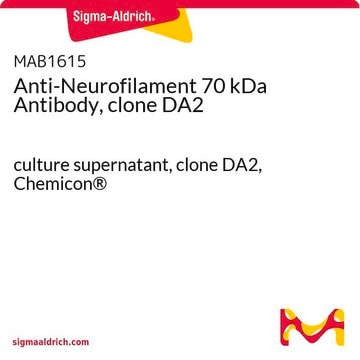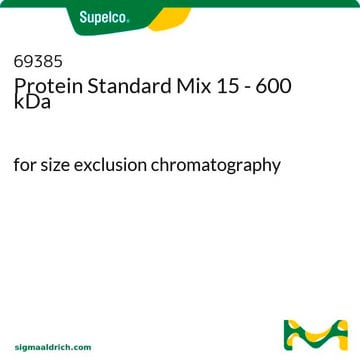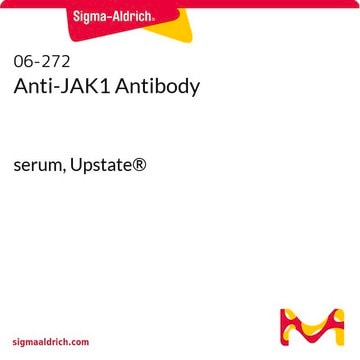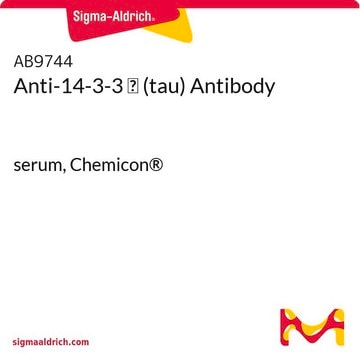AB5354
Anti-Internexin α Antibody
serum, Chemicon®
Sinónimos:
Anti-NEF5, Anti-NF-66, Anti-NF66, Anti-TXBP-1
About This Item
Productos recomendados
biological source
rabbit
Quality Level
antibody form
serum
antibody product type
primary antibodies
clone
polyclonal
species reactivity (predicted by homology)
mammals
manufacturer/tradename
Chemicon®
technique(s)
ELISA: suitable
immunocytochemistry: suitable
immunohistochemistry: suitable
western blot: suitable
NCBI accession no.
UniProt accession no.
shipped in
dry ice
target post-translational modification
unmodified
Gene Information
human ... INA(9118)
Specificity
Immunogen
Application
Immunocytochemistry.
Western blot: using human or rat brain homogenates.
ELISA
Optimal working dilutions must be determined by end user.
Neuroscience
Neurofilament & Neuron Metabolism
Neuronal & Glial Markers
Linkage
Physical form
Storage and Stability
Analysis Note
POSITIVE CONTROL CELLS: PC12, Ntera2.
Legal Information
Disclaimer
¿No encuentra el producto adecuado?
Pruebe nuestro Herramienta de selección de productos.
Storage Class
11 - Combustible Solids
wgk_germany
WGK 1
flash_point_f
Not applicable
flash_point_c
Not applicable
Certificados de análisis (COA)
Busque Certificados de análisis (COA) introduciendo el número de lote del producto. Los números de lote se encuentran en la etiqueta del producto después de las palabras «Lot» o «Batch»
¿Ya tiene este producto?
Encuentre la documentación para los productos que ha comprado recientemente en la Biblioteca de documentos.
Nuestro equipo de científicos tiene experiencia en todas las áreas de investigación: Ciencias de la vida, Ciencia de los materiales, Síntesis química, Cromatografía, Analítica y muchas otras.
Póngase en contacto con el Servicio técnico








